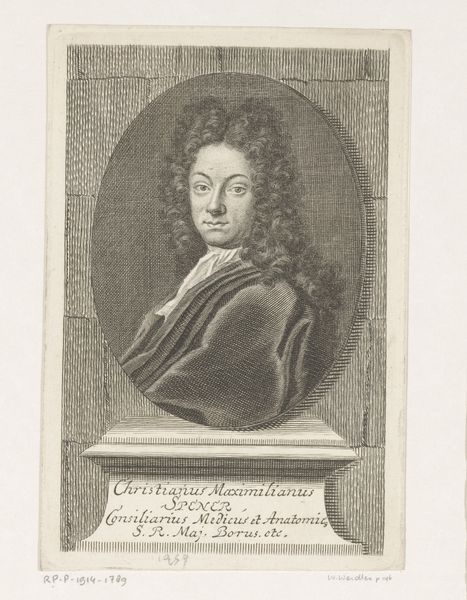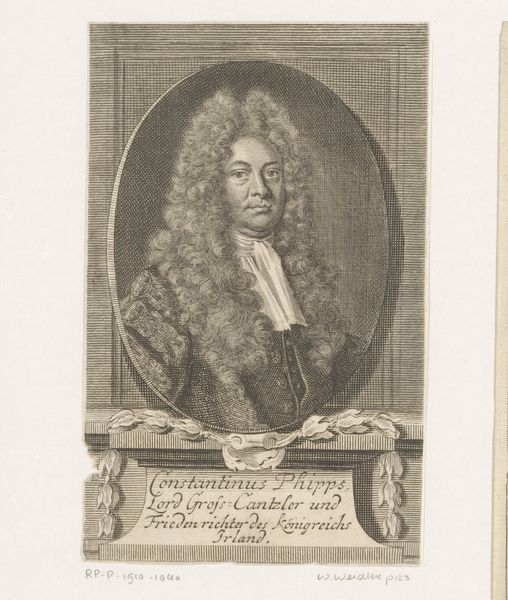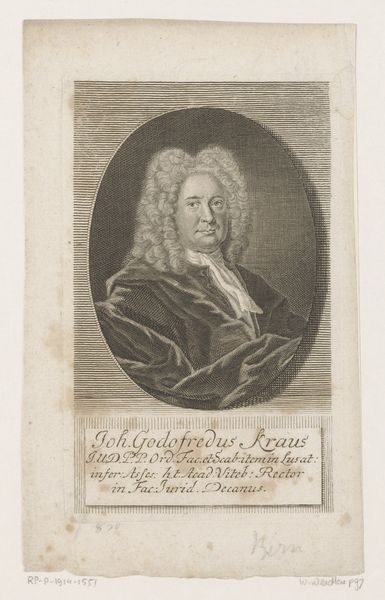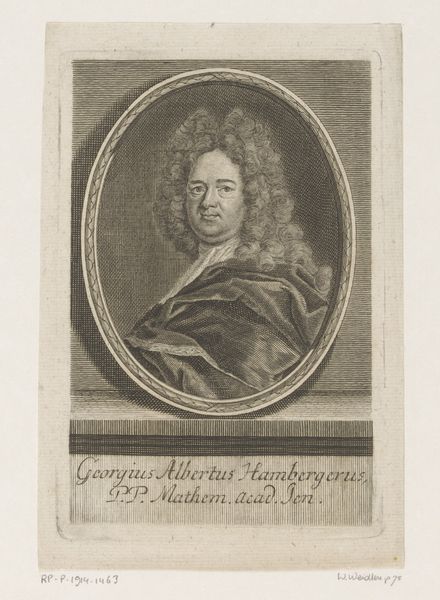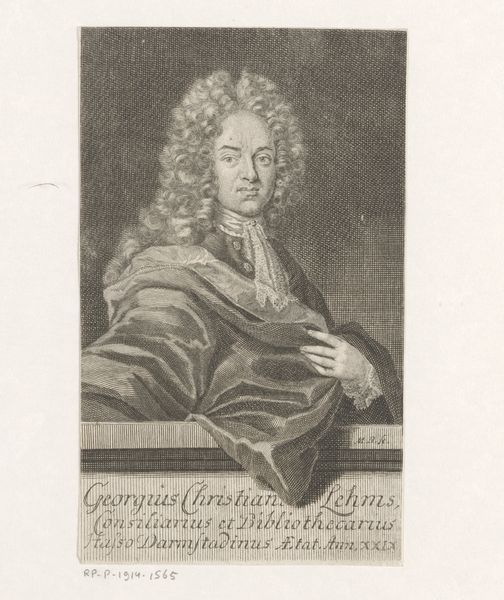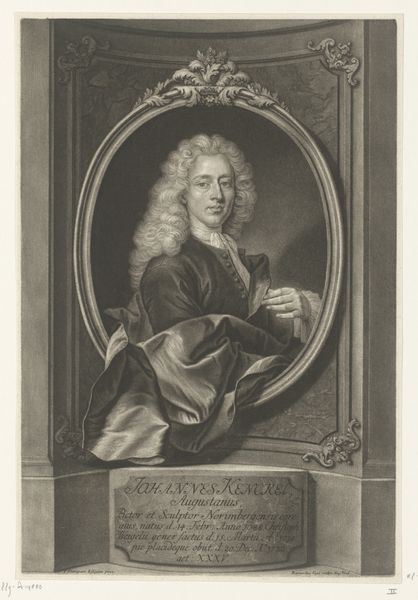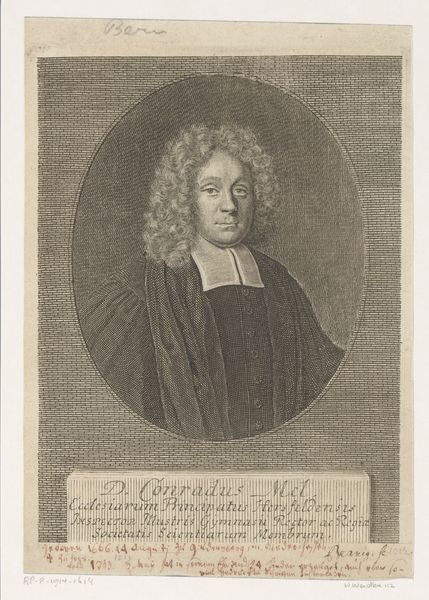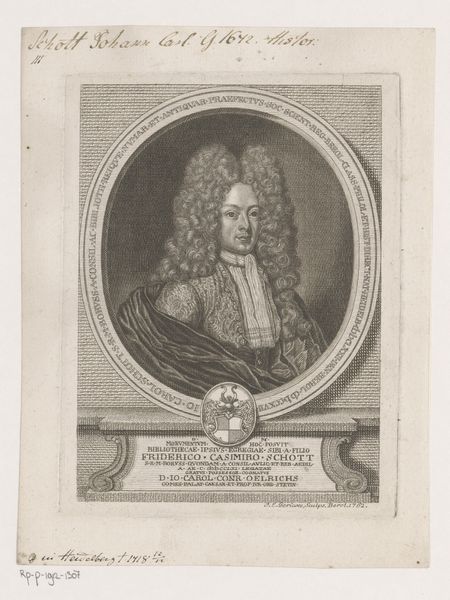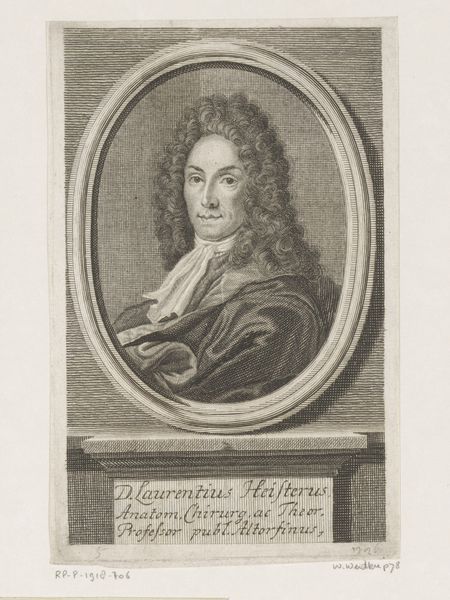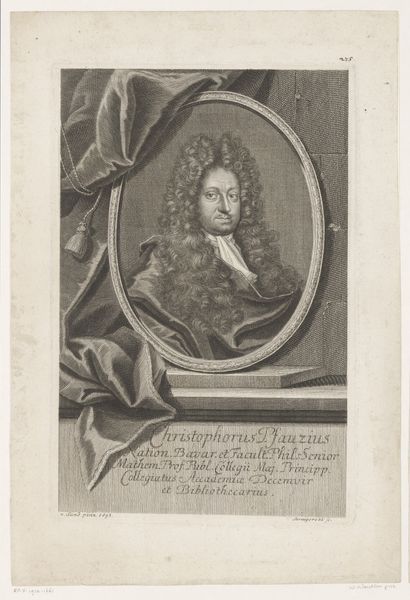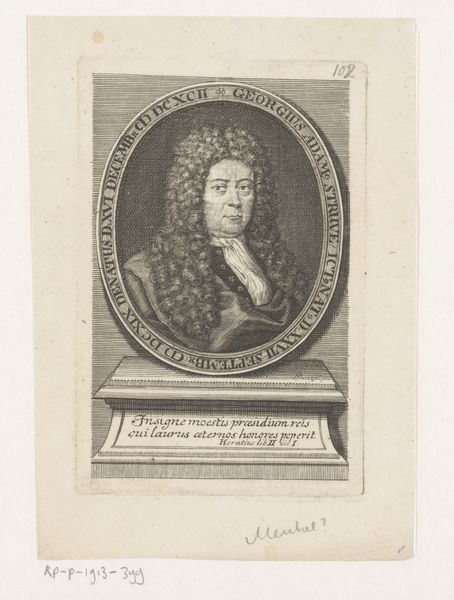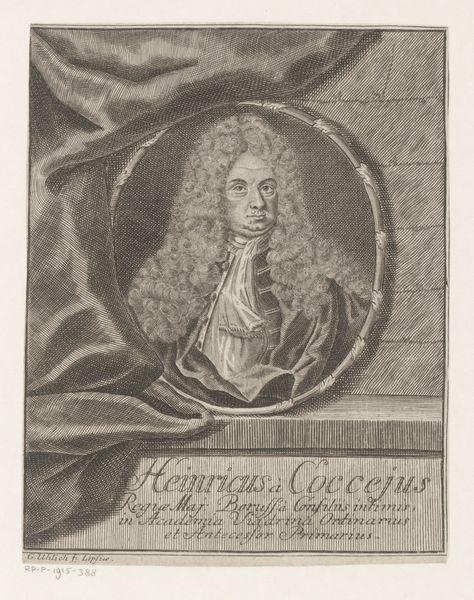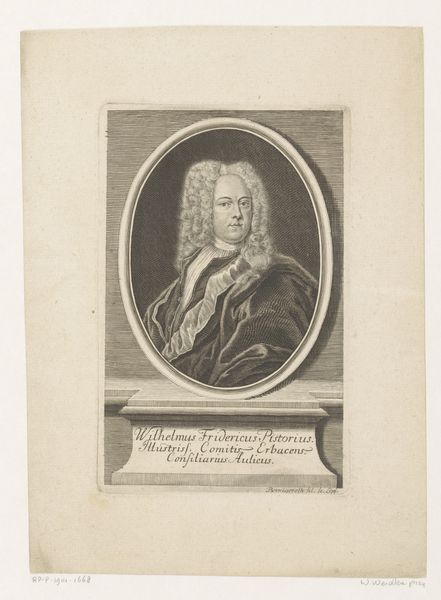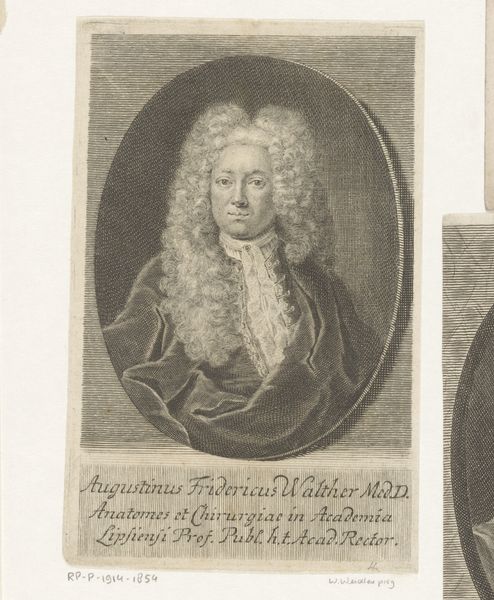
engraving
#
portrait
#
baroque
#
old engraving style
#
portrait reference
#
history-painting
#
engraving
Dimensions: height 147 mm, width 94 mm
Copyright: Rijks Museum: Open Domain
Editor: Here we have "Portret van Christian Gottlieb Schwarz," an engraving from 1723 by Martin Bernigeroth. The level of detail achieved with the engraving technique is striking! It’s quite a formal depiction, very typical of its time. What do you see in this work? Curator: Indeed. Let's observe the interplay of line and tone. Notice how Bernigeroth modulates the density and direction of his engraved lines to create the illusion of volume, particularly in the sitter's elaborate wig and the folds of his garment. The oval frame, itself defined by meticulous hatching, creates a defined space for our focal point. Editor: So you're drawn to the technical mastery and formal composition? Curator: Precisely. Consider how the engraving medium itself contributes to the artwork's meaning. The precision and repeatability inherent in engraving elevate Schwarz, casting him as an esteemed intellectual of his era. Editor: It's interesting to think about how the medium shapes our perception of the subject. I hadn't considered that before. Curator: Consider also the surface and texture, the plate impressions, which give tactile dimension and activate the interplay between artwork and viewer. These small textural intricacies enhance meaning in the visual narrative. The baroque period certainly relished ornamentation and symbolism. Editor: Thinking about those details, the wig, the gown, it shows a real commitment to presentation, doesn't it? Thanks for highlighting this; it helps me read these portraits with fresh eyes. Curator: My pleasure. These formal considerations provide insight and demonstrate an intriguing perspective into how meaning can be derived through close observation.
Comments
No comments
Be the first to comment and join the conversation on the ultimate creative platform.
